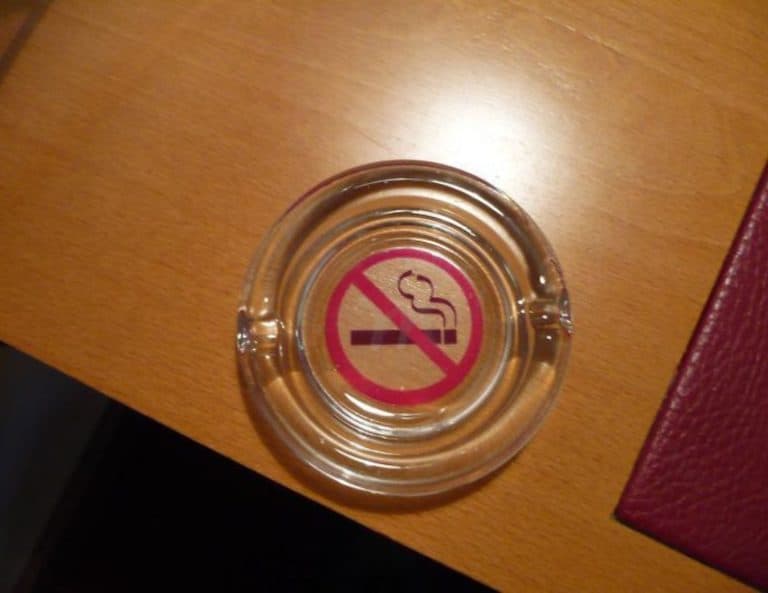Discover the truth behind the discomfort of hotel beds.
If you’re short on time, here’s a quick answer to your question: Hotel beds can be uncomfortable due to various factors such as poor mattress quality, lack of proper support, and insufficient bedding layers.
In this article, we will delve into the reasons why hotel beds often leave us tossing and turning throughout the night. We’ll explore the impact of mattress quality, support systems, bedding layers, and other factors that contribute to this common complaint. By understanding these reasons, you’ll be better equipped to choose comfortable accommodations for your future travels.
The Role of Mattress Quality
When it comes to the comfort of hotel beds, one of the key factors to consider is the quality of the mattress. A good mattress can make all the difference in providing a restful and comfortable night’s sleep for hotel guests. On the other hand, a low-quality mattress can lead to aches, pains, and a poor sleep experience.
The impact of low-quality mattresses on comfort
Low-quality mattresses can significantly impact the comfort of hotel beds. These mattresses may lack proper support, leading to sagging or uneven surfaces. As a result, guests may experience discomfort and find it difficult to find a comfortable sleeping position. Furthermore, low-quality mattresses may not have adequate cushioning, causing pressure points and increasing the likelihood of waking up with body aches.
Moreover, these mattresses may not be able to properly distribute weight, leading to a lack of support in certain areas of the body. This can result in poor spinal alignment and potential back pain. The overall lack of comfort from a low-quality mattress can significantly impact the quality of sleep, leaving guests feeling tired and unrested.
It’s important for hotels to invest in high-quality mattresses that provide proper support and comfort for their guests. By doing so, they can enhance the overall guest experience and ensure a good night’s sleep.
The importance of selecting the right mattress type for hotel beds
When selecting mattresses for hotel beds, it’s crucial to consider the different types available. Each mattress type has its own unique features and benefits, which can greatly impact the comfort level of guests.
One popular option is the memory foam mattress, known for its ability to contour to the body’s shape and provide personalized support. Memory foam mattresses are also known for their motion isolation properties, making them a great choice for hotels as they minimize disturbances caused by a restless sleep partner.
Another option is the innerspring mattress, which is made up of steel coils and provides a good balance of support and comfort. Innerspring mattresses are known for their durability and breathability, allowing for a cooler sleep experience.
Hotels may also opt for hybrid mattresses, which combine the benefits of both memory foam and innerspring mattresses. These mattresses typically have a layer of memory foam on top of an innerspring core, offering the best of both worlds in terms of support and comfort.
By selecting the right mattress type for hotel beds, hotels can ensure that their guests have a comfortable and enjoyable stay. Investing in high-quality mattresses not only promotes guest satisfaction but also contributes to the overall reputation and success of the hotel.
Insufficient Support Systems
Have you ever wondered why hotel beds often leave you tossing and turning throughout the night? One of the main reasons for this discomfort is the insufficient support systems used in hotel mattresses. These support systems play a crucial role in providing the necessary support to your body while you sleep, ensuring a restful and comfortable experience.
How inadequate support affects your sleep
When a mattress lacks proper support, it can lead to a host of sleep-related issues. Without adequate support, your body may sink too deeply into the mattress, resulting in poor spinal alignment. This misalignment can cause discomfort, stiffness, and even pain in your back, neck, and shoulders. Additionally, insufficient support may also lead to increased pressure points, which can cause discomfort and disrupt your sleep.
Furthermore, inadequate support can also lead to decreased blood circulation and an increase in body temperature, making it more difficult for you to fall asleep and stay asleep throughout the night. This can leave you feeling tired and groggy the next day, affecting your overall well-being and productivity.
The role of box springs and bed frames in providing support
Box springs and bed frames play a crucial role in providing the necessary support for a comfortable sleep experience. Box springs, which are typically made of wood or metal springs, act as a shock absorber and distribute weight evenly across the mattress. They help prevent sagging and provide additional support for your body.
Bed frames, on the other hand, provide stability and support for the entire bed structure. They help distribute weight evenly and prevent the mattress from sinking or shifting out of place. A sturdy bed frame ensures that you have a solid foundation to support your mattress and ultimately, your body.
It’s important to note that not all hotels invest in high-quality support systems for their beds. Some may opt for cheaper alternatives that may not provide adequate support. This is why it’s always a good idea to do some research before booking a hotel, ensuring that they prioritize your comfort and sleep quality.
For more information on how to choose a mattress with proper support, you can visit websites like The National Sleep Foundation or Mayo Clinic for expert advice and recommendations.
Inadequate Bedding Layers
When it comes to the comfort of hotel beds, one of the main culprits is often inadequate bedding layers. The quality and combination of mattress toppers, protectors, pillows, duvets, and linens play a significant role in determining how comfortable a bed feels. Let’s explore the importance of each of these elements in enhancing the overall sleep experience.
The significance of mattress toppers and protectors
One of the key components of a comfortable hotel bed is the mattress topper. A good quality topper can provide an additional layer of cushioning and support, relieving pressure points and promoting a more restful sleep. It helps soften the mattress and adds an extra level of comfort. Additionally, mattress protectors are crucial for maintaining hygiene and protecting the mattress from spills, stains, and allergens. These protective layers not only extend the lifespan of the mattress but also contribute to a more comfortable and pleasant sleep environment.
The role of pillows, duvets, and linens in enhancing comfort
Pillows, duvets, and linens also play an essential role in creating a comfortable sleeping experience. The choice of pillows varies depending on individual preferences and needs, such as firmness and support. Hotels often provide a range of pillow options to cater to different sleep styles. A high-quality duvet with the right level of warmth and breathability can contribute to a cozy and relaxing sleep. Furthermore, luxurious linens made from soft and breathable materials like Egyptian cotton can enhance the overall comfort and provide a more indulgent sleeping experience.
It’s worth noting that the quality and maintenance of these bedding layers can significantly impact the comfort of a hotel bed. Regular washing and replacement of pillows, duvets, and linens are essential to ensure optimal cleanliness and comfort. Hotel management should invest in high-quality bedding materials and prioritize regular maintenance to provide guests with the best possible sleeping experience.
Lack of Personalized Sleep Preferences
The challenge of accommodating individual sleep needs
One of the main reasons why hotel beds can be uncomfortable is the lack of personalized sleep preferences. When staying at a hotel, you are essentially sleeping on a bed that has been designed to cater to the average guest. However, we all have unique sleep preferences and comfort levels. Some people prefer a firmer mattress, while others prefer a softer one. Some may require extra pillows for support, while others may find them uncomfortable. Unfortunately, hotels cannot cater to every individual’s specific needs, leading to a lack of comfort for some guests.
According to a survey conducted by Sleep.org, 80% of hotel guests reported experiencing discomfort during their stay due to the inability to adjust the bed to their liking. This can result in disrupted sleep and leave guests feeling tired and unrested.
Furthermore, hotels often use standard bedding materials that may not suit everyone’s preferences. For example, some guests may find the sheets too scratchy or the blankets too heavy. These factors can contribute to a less-than-ideal sleeping experience.
The benefits of hotels offering customizable bedding options
To address the issue of uncomfortable beds, some hotels have started offering customizable bedding options. This allows guests to choose the firmness of their mattress, the type of pillows they prefer, and even the materials used for sheets and blankets.
By offering these personalized sleep options, hotels can enhance the overall guest experience. Guests are more likely to have a restful night’s sleep when their bedding aligns with their preferences. This can lead to higher customer satisfaction and positive reviews.
Some hotels have taken this customization a step further by partnering with sleep technology companies. These companies provide innovative solutions such as adjustable beds that can be personalized at the touch of a button. This allows guests to find their perfect sleep position, ensuring maximum comfort throughout the night.
According to a study conducted by J.D. Power, hotels that offer customizable bedding options have higher guest satisfaction scores compared to those that don’t. This highlights the importance of catering to individual sleep preferences and the positive impact it can have on guest experience.
Maintenance and Cleanliness
When it comes to hotel beds, one of the key factors that can greatly impact their comfort level is maintenance. Lack of proper maintenance can lead to sagging mattresses, worn-out springs, and lumpy pillows, making it difficult for guests to get a good night’s sleep. These issues can arise from a combination of factors such as frequent use, improper handling, and inadequate inspection.
The impact of inadequate maintenance on bed comfort
Imagine checking into a hotel room after a long day of travel, only to find that the mattress is sagging in the middle. Not only does this create discomfort, but it can also lead to back pain and restless nights. Inadequate maintenance of hotel beds can result in worn-out springs, loose frames, and deteriorating mattress foam, all of which contribute to an uncomfortable sleep experience.
Furthermore, pillows that have lost their shape or become lumpy over time can cause discomfort and strain on the neck and shoulders. These issues can significantly impact the quality of sleep and overall satisfaction of hotel guests.
The importance of cleanliness for a comfortable sleep experience
In addition to maintenance, cleanliness plays a crucial role in ensuring a comfortable sleep experience. A clean and hygienic bed not only promotes better sleep but also helps prevent the spread of bacteria and allergens that can trigger allergies or respiratory issues.
Hotel beds that are not properly cleaned can harbor dust mites, bed bugs, and other microorganisms that can affect the health and well-being of guests. Regular cleaning and sanitization of mattresses, pillows, and bedding are essential to maintain a healthy sleep environment.
According to a study conducted by the National Sleep Foundation, a clean and comfortable bed can improve the quality of sleep and contribute to overall well-being. It is recommended that hotels follow industry standards and guidelines for cleaning and maintenance to ensure the comfort and satisfaction of their guests.
For more information on hotel bed maintenance and cleanliness, you can visit:
- Hotel Management: How to Keep Your Hotel Mattresses Clean and Healthy
- HospitalityNet: The Impact of Hotel Bedding on Guest Satisfaction
Conclusion
Next time you find yourself tossing and turning in a hotel bed, remember that several factors contribute to its discomfort.
From the quality of the mattress and support systems to the bedding layers and hygiene levels, each aspect plays a role in determining your sleep experience.
By being aware of these factors, you can make informed decisions when choosing accommodations and even take steps to enhance your comfort during your stay.
So, the next time you travel, be proactive in ensuring a good night’s sleep by considering these factors and selecting a hotel that prioritizes your comfort.
Rest well and enjoy your travels!






